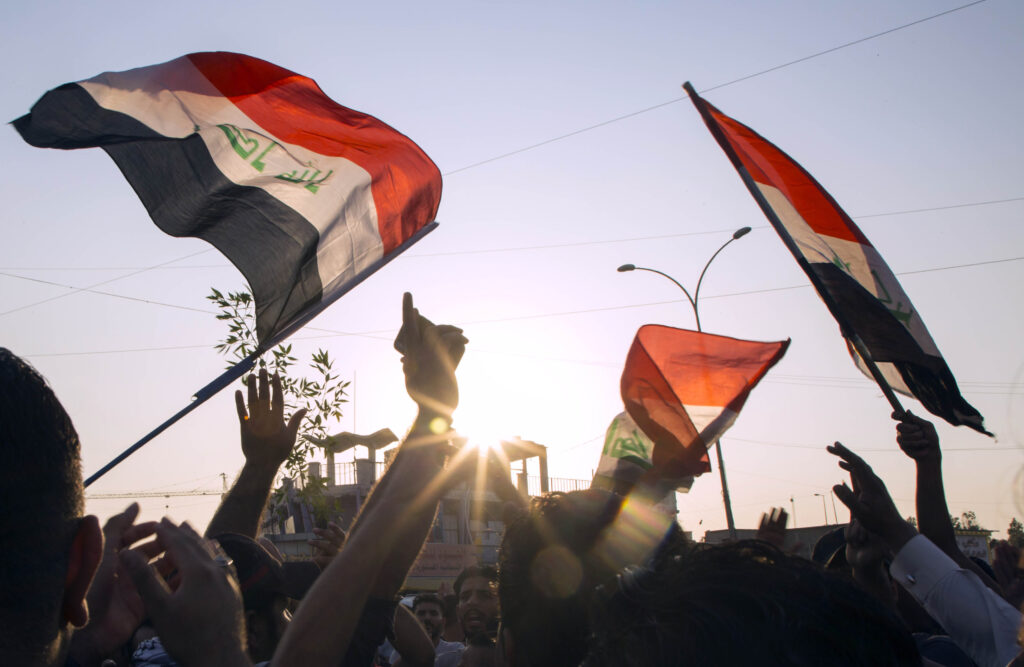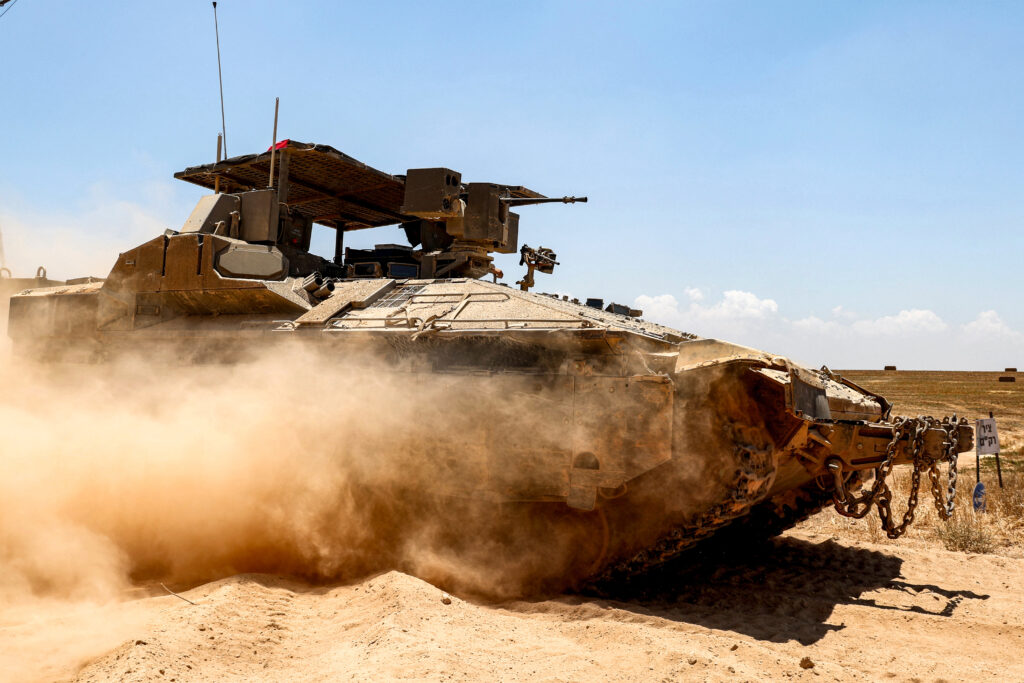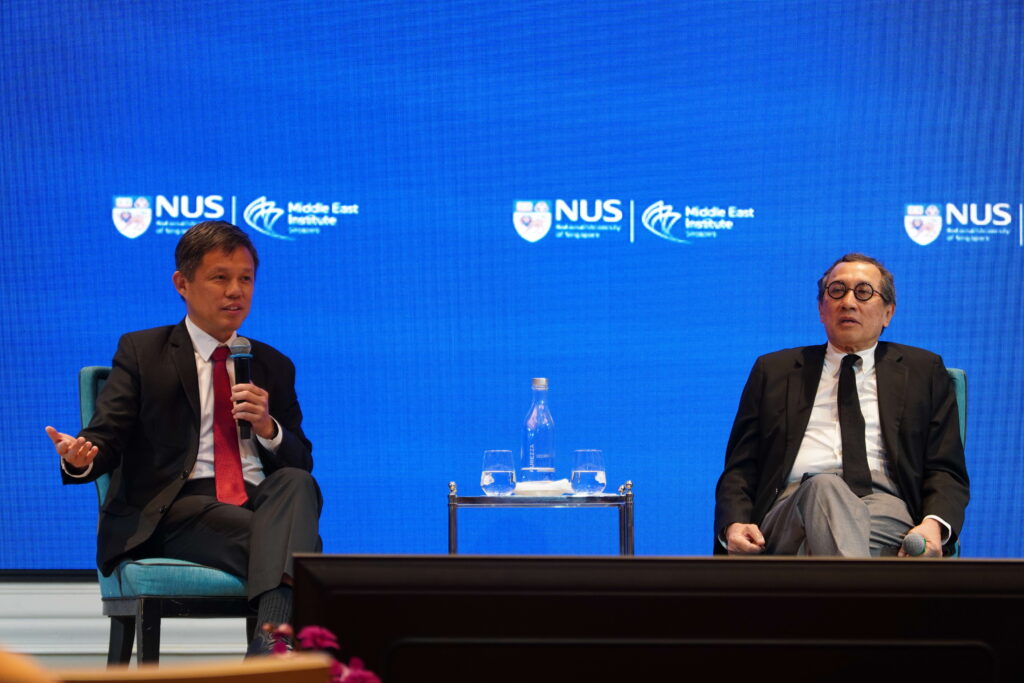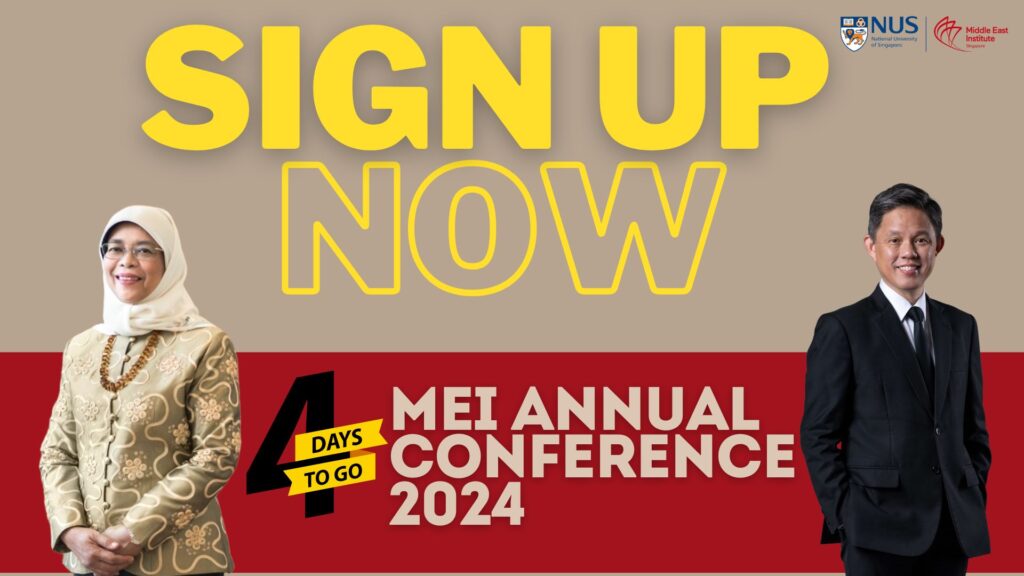Two Decades After War, Iraq May Catch a Break from Shifting Geopolitical Currents
- - April 11, 2023

By Gyorgy Busztin, Visiting Research Professor, MEI-NUS
Two decades after the United States-led invasion toppled Saddam Hussein, Iraq is still reeling from the fallout of the geopolitical reshuffle that followed. Its sovereignty dangerously weakened, the oil-rich country is now a battleground for influence among covetous neighbors.
Sitting on the fault line between the Shia and the Sunni worlds, Iraq has always suffered the consequences: During Saddam’s rule, it was touted as the last outpost of the Sunni Arab world facing the Shia menace, a narrative played up during the Iraq-Iran War. When the Shia takeover post-Saddam made Iran the dominant influence in the country, the old narrative was turned on its head: Iraq was now the forward base of the Axis of Resistance to keep the Shia in power in Syria, and the strongest faction in Lebanon. Iran’s drive to establish the so-called Shia Crescent was perceived as a danger by the Sunni powers bordering Iraq, and Saudi Arabia, Jordan, and Turkey. In response, they have, to varying degrees, mobilised to thwart a total takeover of Iraq by Tehran.
That is just the external environment. Inside Iraq, the sectarian divide is as wide as ever. The Shia are united to prevent a return to Sunni hegemony, but the latter have also found new political unity, and are seeking alliances with moderate Shia, and support from Arab capitals.
Domestic political and economic crises which have led to mass protests, and elections which contributed little to solving Iraq’s endemic problems, have prevented a genuine coming together of Iraqis along a shared vision for their country’s future.
But while the picture remains dire, some green shoots have sprouted recently, giving rise to some hope that a changing regional environment will help Iraq regain a surer footing in its neighbourhood, making it less of an object of covetousness.
The Saudi – Iran deal is a mixed bag for Iraq
The recently-formed Iraqi government of Prime Minister Mohammed Al-Sudani is trying to balance between competing regional influences in a bid to carve out some space for itself. Since coming to power, it has continued the previous government’s policy of reconciling with all its neighbours. The most spectacular success of this policy was the mediation begun by former Prime Minister Mustafa Al-Kadhimi to facilitate dialogue between Iran and Saudi Arabia. The negotiations, which continued on and off for the last two years, helped build some trust between the two — a critical factor which laid the foundations for China’s success in brokering a deal.
Perhaps as important, Baghdad’s mediation efforts helped dispel Riyadh’s longstanding mistrust of Iraq being a forward base for Iran. The dialogue also helped reduce Iraqi fears of tensions between Riyadh and Tehran spiralling out of control, which would have set back Iraq’s relations with the Kingdom at a time when it badly needs economic assistance. While help from Riyadh is modest at the moment, Baghdad is holding out hope that more will be forthcoming — if nothing else, as a Saudi bid to create some distance between Iraq and Iran.
Still, Iraq is not impervious to the danger that the embrace between its two big neighbours will squeeze it. Baghdad must keep talking to both to safeguard its interests, especially on energy, since Saudi Arabia and Iran can have a big effect in this regard: Riyadh through its decisive role in OPEC+, and Iran through its proxy militias, which control the major oil export terminal of Iraq on the Gulf. [how so??] As OPEC+ moved recently to cut production to counter a slump in oil prices, Iraq must be alert as oil exports form its only reliable revenue source. It was with this in mind that Baghdad greeted an arbitration judgement by the Paris-based International Chamber of Commerce that re-established its control over Iraqi Kurdish oil exports to Turkey.
Iraq’s ultimate concern is the disruptive effect that Iran and Saudi Arabia can exert on its national unity by way of their loyalists, hence its pushback against Iran-allied groups since the May 2018 elections, which has also gained a measure of popular support. Meanwhile, Baghdad has long sought to rein in Iranian proxy militias active on its border with Saudi Arabia, a major irritant in its ties with Riyadh. A more cooperative climate fostered by the Saudi-Iran deal could help Iraq’s cause.
Reaching out to Turkey an important signal
It will not be lost on the observer that PM Sudani’s visit to Ankara recently, long in the offing, came almost immediately after news of the Saudi-Iran détente. Baghdad has navigated a contentious relationship with President Recep Tayyip Erdogan since Turkey solidified its hold on northern Iraq with multiple military bases set up along the Iraqi side of the border. These were allegedly to counter People’s Protection Units (YPG) activity, which were tacitly but effectively supported by Iran, the group’s main arms supplier. The Turkish bases also constituted a bulwark against Tehran’s attempts at establishing territorial contiguity between Iran and areas under its proxy forces’ control in Syria and Lebanon.
Baghdad has repeatedly protested against Turkish breaches of its sovereignty. Ankara has in turn pointed the finger at the free movement of Iranian militias and Islamic Revolutionary Guard Corps (IRGC) forces across Iraq. Particularly devastating Turkish military actions, like the shelling which caused multiple civilian deaths in the border area last year, elicited sharp Iraqi responses, and a strong public backlash, but Baghdad — fully aware of how it needs Turkey as a counter to Iranian overreach — has always been careful not to strain the relationship beyond breaking point.
The meeting between the two leaders may result in an upsurge in trade, and an enhanced level of Turkish investment, up to the level of Ankara showing interest in expanding Iraq’s maritime outreach in the Persian Gulf. The New Fao Harbor project, according to Turkish planners, could become the end-point of a corridor for Turkish goods arriving directly in the Gulf, a hitherto unachievable objective for Ankara.
The most critical issue reviewed with Turkey was Iraq’s water supply, which almost exclusively originates from its northern neighbour. Both the Tigris and Euphrates, veritable lifelines for Iraq, have seen dramatic drops in their levels which, if they continue, could obliterate much of Iraq’s agriculture industry. The Southern Marshlands, crucial for the ecosystem, could irreversibly dry out if not replenished soon. Common steps are urgently needed to remedy the situation.
While the jury is still out on whether ties between the two countries will improve after Mr Sudani’s visit — media reports referred to steps to boost the economic relationship, among other things, without providing specifics — the fact that the meeting even took place after a lengthy period of turbulence is a positive sign. It is another mini-step for Iraq in its arduous trek to create some breathing space for itself.
Tehran remains master of the game in Iraq, but Baghdad may loosen the grip
Two decades since establishing itself in Iraq, Iran’s influence is undiminished, with powerful militias and political allies loyally safeguarding its interests. Still, Tehran does not have it all: It must contend with an unfriendly Kurdish Autonomous Region, which is bolstered by the close alliance Erbil maintains with both Ankara and Washington. It must also take into account the pushback from Sunni political parties in Iraq that refuse to be pliant to Tehran and are looking to Arab capitals for support. Iraqi public opinion, sectarian affiliation notwithstanding, is increasingly critical of Iran’s attempts to meddle in the country’s affairs, exploit its economy, and sustain a self-serving political elite that has engendered rampant lawlessness, corruption, and mismanagement.
As a member of the Arab League, but with a Shia majority, Iraq must balance between two worlds at a time of critical geopolitical changes in the region. As the head of a coalition government cobbled together from disparate political parties with conflicting loyalties, PM Sudani has sought to strike a balance between Iraq’s contentious neighbours, and his first six months in power brought some much-needed stability for the country. The shifting regional architecture will not be without its challenges, but will also present Iraq with its best opportunities to move on from its two decades in the wilderness.
Image caption: Iraqi demonstrators waving flags during protests in Baghdad. Photo: The Institute for the Study of War / Hussein Faleh / AFP via Getty Images
About the Author
Dr Gyorgy Busztin is Visiting Research Professor at the Middle East Institute, NUS.
A career diplomat and an academic, he served, between 2001 and 2011, as Hungary’s ambassador to Indonesia and subsequently, Iran. In 2011, Dr Busztin was appointed deputy envoy of the United Nations in Iraq, responsible for the political, analytical, electoral and constitutional support components of the UN’s mission in Iraq. He served at the level of assistant secretary-general until October 2017.
Dr Busztin holds a degree in Arabic history from Damascus University, Syria and a Doctorate in Arabic language and Semitic philology from Lorand Eotvos University in Hungary. In addition to his native Hungarian, he speaks English, French, Arabic, Farsi/Dari (Persian), Malay (Indonesian) and Russian. He believes strongly in political and intercultural dialogue and has engaged leading politicians, intellectuals, religious leaders and representatives of civil society.
More in This Series
More in This Series
- Jean-Loup Samaan
- - July 11, 2024
- Aisha Al-Sarihi, Ehsan Rasoulinezhad, Jinseok Sung
- - June 20, 2024








